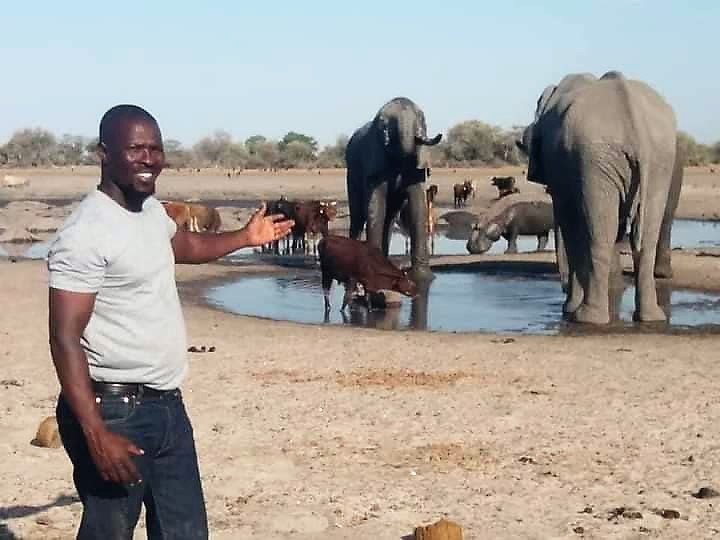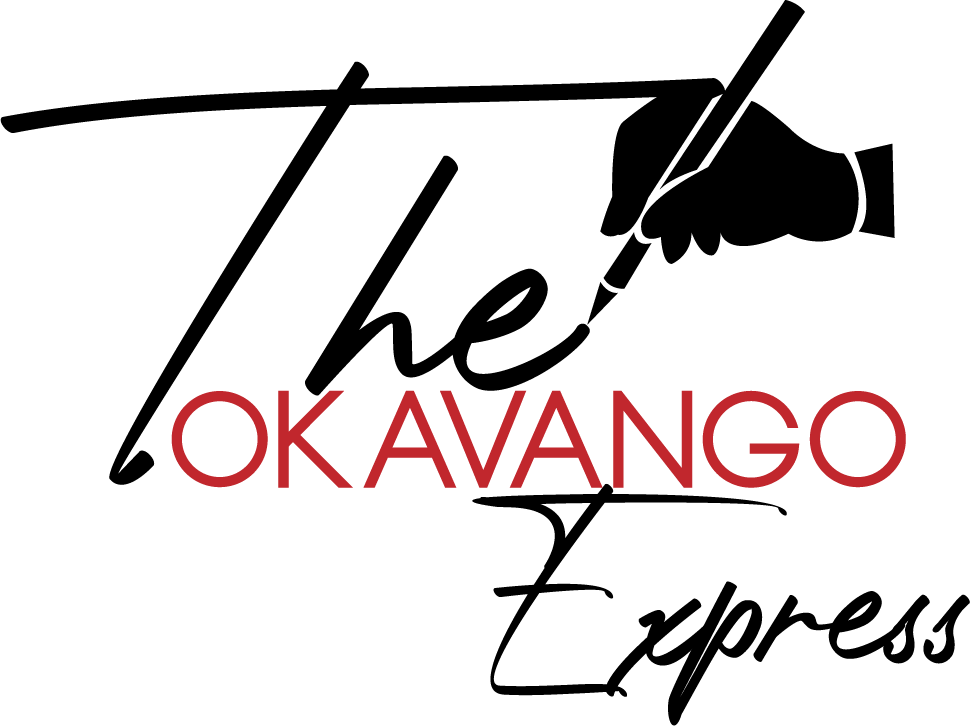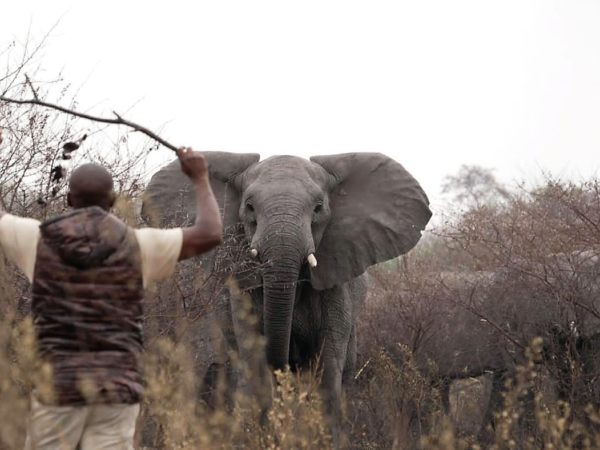By Boniface Keakabetse
Oaitse Nawa (47) is a qualified professional safari guide and founder of the budding conservation nonprofit, Elephant Protection Society (EPS).
Nawa founded Elephant Protection Society In 2018, an NGO whose mandate is to conserve elephants and the community livelihoods of people living in wildlife areas.
He started from the bottom in Okavango delta’s tourism sector working as a scullery then waiter for Wild lifestyles Mobile Safari.
Five years later in 2001, now working for Elephant Back Safaris, Nawa had an opportunity to serve the young Prince William and his brother Harry in the Okavango Delta.
“I was their butler while they were were camping with Randall More of Elephant Back Safaris. Prince William was a well reserved guest compared to his energetic brother Prince Harry “adding ‘from his demeanor you could hardly know Prince William was heir to throne of such powerful royalty.’
Nawa’s passion for conservation work led to the formation of EPS, so far involved in a number of conservation work at grass roots levels. In 2019, EPS spearheaded a feeding programme for hundreds of hippos stranded by drought in Nxaraga. The project was a success in saving the besieged hippos facing one of worst climate crises from the inevitable death.
EPS was also implemented a project termed: ”Project Buffalo Fence’ involving maintenance of the veterinary fence separating Okavango Delta from human settlements, commonly known as the Buffalo Fence.
The Buffalo fence was erected by Botswana Government in 1982 as strategy to protect the beef sector from Foot and Mouth Disease outbreaks from buffalo- cattle contact.
Nawa explained: ‘Due to its poor maintenance there has been increased human and wildlife conflicts caused by mixing of cattle and buffaloes. Some farmers end up shooting wildlife especially elephants that they blame for destroying the fence.’’
However, EPS like many other ground roots conservation organisations challenges in accessing international funding. Nawa told The Okavango Express that they are currently working with farmers in Boro on the fringes of the Okavango Delta.’’ Our work here entails undertaking elephant patrols to help stop rampant human elephant’s conflicts in the area caused by elephants damaging ploughing fields. Lots of elephants in the area end up getting shot by farmers.’’
He said they are however facing an acute shortage of resources like vehicles, GPS devices, solar lights that they need adding that accessing international funding have so far been a challenge.

This revelations comes shortly following a new 40-page study, Greening the Grassroots: Rethinking African Conservation Funding by Maliasili and Synchronicity Earth featuring interviews with close to 50 African local and grassroots conservation, climate, and environment organizations, and their funders.
The study published last month found that local conservation organizations in Africa struggle to grow or increase their impact because of inbuilt barriers and challenges in how they are funded.
Maliasili research further reported that this despite smaller, African-led groups working directly with local communities becoming increasingly recognised as key to securing indigenous and community land rights, improving rural livelihoods, conserving nature, and addressing climate change.
It stated that Globally Indigenous Peoples and local community organizations receive less than 1% of all climate funding while African entities receive only 5% to 10% of private philanthropic funding invested in all of Africa.
Fred Nelson, CEO of Maliasili, said: “We cannot hope to address conservation and environmental challenges in Africa today if we can’t get the right kind of investment to the most talented and effective organizations in the field. Conservationists need to come together to improve funding practices, partnerships between funders, international organizations and local groups, and develop more effective and efficient funding mechanisms. We hope this report will provide guidance on ways to rethink and reform funding practices in African conservation, and get more of the right kind of funding to African organizations.”
Maliasili’s portfolio includes more than 30 leading community-based and national civil society organizations as well as more than 80 conservation leaders working across eastern and southern Africa and Madagascar.
The research findings are echoed by Siyoka Simasiku, Director of Ngamiland Council of Non-governmental Organisations whose membership include 60 community organisations based in Ngamiland and Chobe districts.
Simasiku stated that the funding coming to Africa is a miniscule affecting many ground roots conservation organisations.
He explained: ‘’we are now witnessing a worrying trend where some of the funding organisations have now moved in to project implementation. They are now implementing projects at grassroots levels pushing aside the rural grass roots organisations.’’
Further Simasiku opined that the short span of project funding does not work for the organisations due project funding period.
‘’ what we need in Africa is long term project sustainable funding models not this short projects. Right now a lot of projects crumble as soon as funding runs out. For example in Ngamiland, Botswana, we have had the Sustainable Land Management project funded by United Nations Development Programme over a five year period. All the pilot projects funded under SLM crumbled as soon as the UNDP funding ran out.’’
Simasiku further reiterated that another problem faced by organization in Botswana is the funding organisations policy of not covering staff salaries and overheads for the funded projects. ‘’ conservation organisations are forced to depend on volunteers because funding organisations do not pay staff salaries or overheads. This is problematic because different organisations need specialized skills for projects implementation. A lot of organisations are failing to retain skills required for these projects because funding does not cover salaries.’’

